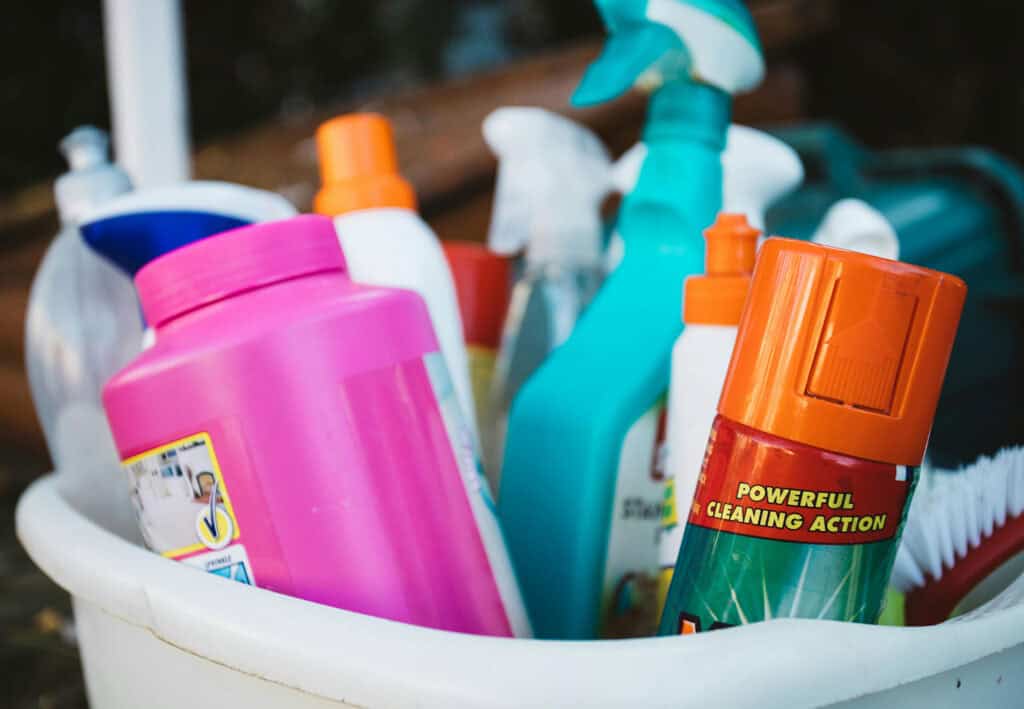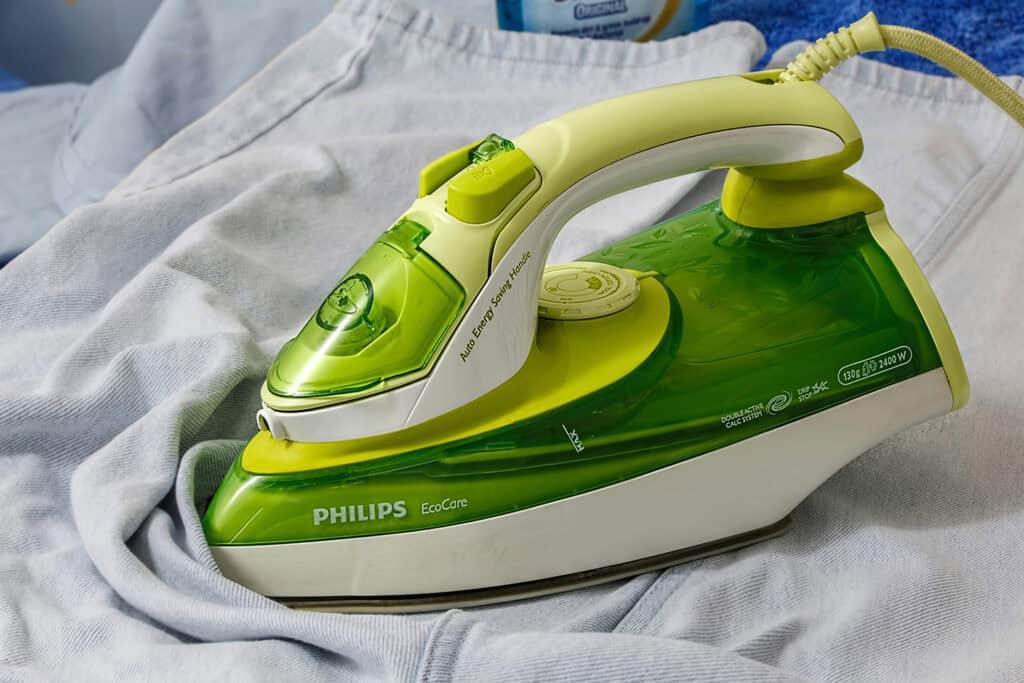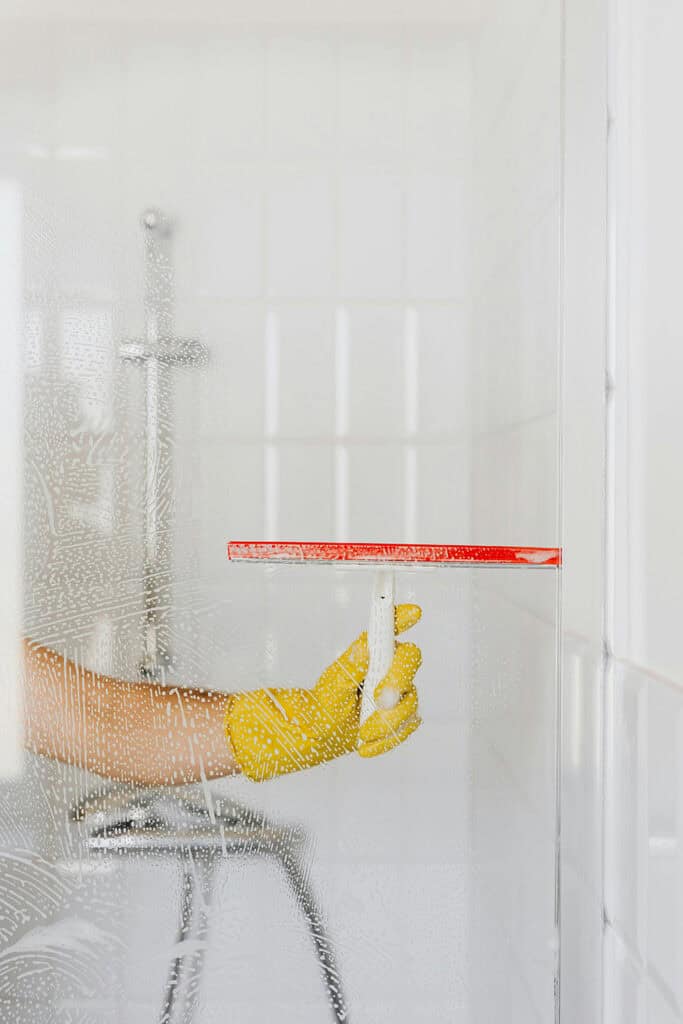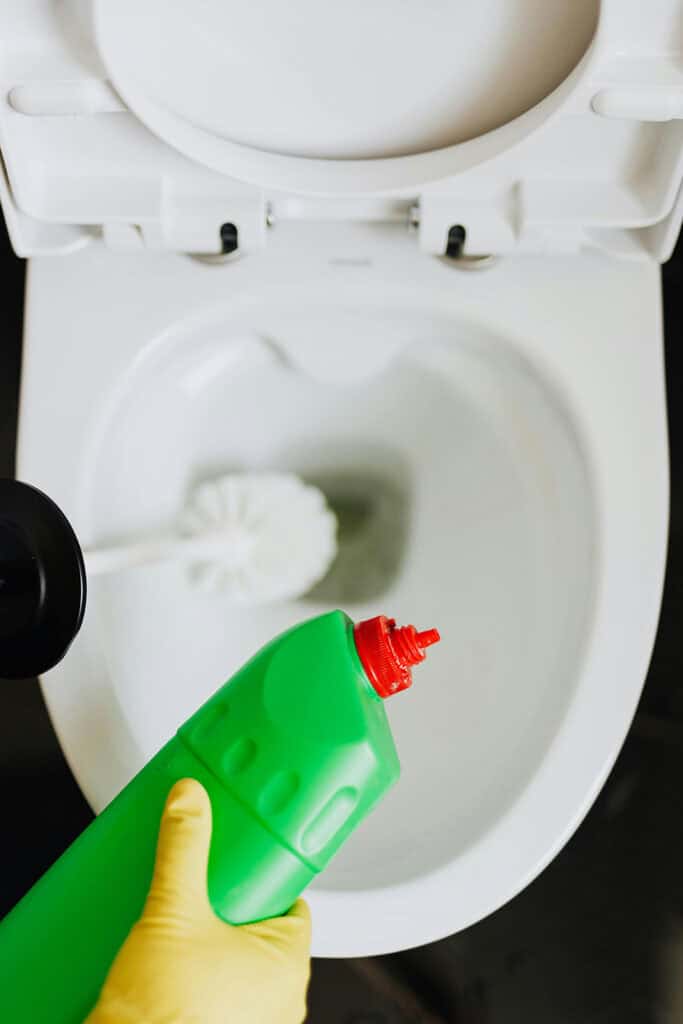
Do you ever feel overwhelmed by the sheer volume of household tasks? Imagine transforming chaos into order with a simple, structured plan that keeps your home spotless and your mind at ease.
As someone juggling multiple responsibilities, managing household chores can be a daunting task. You’re not alone in this struggle; many seek ways to maintain a clean home without the stress.
With practical insights and strategies, I’ll help you tackle chores efficiently and maintain a tidy home.
Discover the benefits of a weekly chores list, learn how to create an effective one, and explore tips to stay consistent. We’ll also explore tools and supplies that make cleaning easier and more efficient.
Ready to take control of your household chores? Continue reading to unlock the secrets of an organized, stress-free cleaning routine.
By implementing these strategies, you’ll experience enhanced organization, reduced stress, and a cleaner home.
Let’s start this journey together towards a more manageable and rewarding approach to household chores!

Here is a summary of 8 steps for your weekly chores list:
- Benefits of a Weekly Chores List: Ensures organization, cleanliness, time management, family involvement, reduced stress, and accountability.
- Creating an Effective Chores List: An effective chores list is essential for the kitchen, bedroom, bathroom, and living room.
- Tips for Staying Consistent: These 10 tips help us to stay motivated.
- Essential Weekly Chores: Include laundry, bathroom cleaning, floor care, carpet vacuuming, surface dusting, and kitchen wiping.
- Chores for Kids and Teens: Selecting age-appropriate chores helps instill responsibility and a sense of contribution.
- Time-Saving Tips: Create a chore schedule, delegate tasks, use checklists, batch similar tasks, set time limits, and invest in quality supplies.
- Tools and Supplies: Microfiber cloths, all-purpose cleaner, vacuum cleaner, broom, mop, toilet brush, glass cleaner.
- How to Make Chores Fun: Using chore charts, introducing rewards, rotating roles, using lists and schedules, involving the whole family, and gamifying the process.
See also Importance of Family Bonding: 10 Reasons Why Family Time Matter
1. Benefits of a Weekly Chores List

A weekly chores list helps in effectively managing household responsibilities by breaking down cleaning tasks into manageable amounts. This approach ensures that the household remains tidy, making it possible to maintain a clean environment without overwhelming any family members.
Here are 10 benefits of a weekly chores list:
1. Enhanced Organization: Keeps tasks structured, ensuring everything gets done on time.
2. Time Management: Helps allocate time efficiently, avoiding last-minute rushes.
3. Reduced Stress: Knowing tasks are planned reduces anxiety and creates a sense of control.
4. Increased Productivity: Clear plans boost focus and help complete tasks more quickly.
5. Fair Distribution: Ensures chores are divided fairly among household members.
6. Accountability: Clearly outlines responsibilities, making it easier to track progress.
7. Consistency: Promotes regular maintenance, keeping the living space clean and orderly.
8. Goal Achievement: Breaks down larger tasks into manageable steps, making it easier to achieve household goals.
9. Improved Household Harmony: Reduces conflicts over chores by setting clear expectations.
10. Personal Satisfaction: Completing tasks provides a sense of accomplishment and improves overall well-being.
2. Creating an Effective Chores List

An effective chores list is essential for maintaining a clean and organized home. It helps to assign tasks clearly, ensuring that all areas of the house are attended to on a regular basis. Specificity and division of tasks by area can make the process manageable and efficient.
Kitchen
Keeping the kitchen clean requires daily and weekly touch-ups. Regular maintenance prevents the build-up of grime and helps keep food preparation safe.
Here are chores list for kitchen:
- Wipe Kitchen Cabinets: Remove grease stains and fingerprints from cabinet surfaces.
- Sweep and Mop the Kitchen Floor: Maintain cleanliness, especially in high-traffic areas.
- Clean Appliances: Wipe down the microwave, oven, and refrigerator exterior.
- Empty the Garbage Disposal: Prevent odors and clogs by cleaning it weekly.
- Organize Pantry: Check for expired items and organize canned food and other non-perishables.
- Wash Dish Towels: Replace and clean dish towels on a daily basis to ensure hygiene.
- Wipe Countertops: Keep hard surfaces clean to prevent cross-contamination from food prep.
Bathroom
Maintaining a clean bathroom involves regular disinfecting, especially considering it’s a high-moisture environment prone to mold and mildew.
Here are chores list for bathroom:
- Clean Toilet Bowl: Scrub to remove stains and disinfect to kill germs.
- Wipe Down Shower Walls: Prevent mold and mildew by cleaning walls and doors.
- Replace Towels: Switch out hand towels and bath towels to keep the bathroom fresh.
- Scrub Sink and Countertop: Remove toothpaste residue and soap scum daily.
- Clean Mirrors: Use a glass cleaner to remove streaks and spots.
- Empty Trash: Remove trash regularly to avoid unpleasant odors.
- Restock Supplies: Ensure there’s always enough toilet paper and other essentials.
Living Room
The living room is a communal space that benefits from regular tidying and care to keep it welcoming and comfortable.
Here are chores list for living room:
- Vacuum Carpets and Rugs: Remove dirt and dust to maintain appearance and hygiene.
- Dust Furniture and Light Fixtures: Prevent dust build-up on tables, shelves, and lamps.
- Clean Windows and Window Sills: Allow more light in and remove dirt with regular cleaning.
- Organize Clutter: Tidy up magazines, books, and other items to keep the space orderly.
- Wipe Down Hard Surfaces: Clean end tables and other surfaces to remove dust and fingerprints.
- Deep Clean Upholstery: Periodically clean couches and chairs for longer wear.
- Water Plants: Ensure all house plants are watered regularly for a fresh environment.
Bedroom
A clean and organized bedroom leads to better rest and a more relaxing atmosphere.
Here are chores list for bedroom:
- Make the Bed: Daily bed-making gives the room an immediate sense of order.
- Wash Bedding: Clean sheets, pillowcases, and blankets on a weekly basis.
- Declutter Surface: Remove unnecessary items from nightstands and dressers.
- Vacuum Hard Floors and Carpets: Keep floors free from dust and dirt.
- Organize Clothes: Ensure clean clothes are stored properly and dirty ones are placed in the laundry basket.
- Dust Door Frames and Furniture: Regularly dust surfaces to maintain cleanliness.
- Clean Windows and Mirrors: Keep windows and mirrors free from smudges and dirt for a brighter room.
3. Tips for Staying Consistent

Here are 10 tips for staying consistent with a weekly chores list:
1. Set Clear Priorities: Identify the most important tasks and focus on them first.
2. Create a Schedule: Assign specific days and times for each chore to ensure regularity.
3. Use Reminders: Set alarms or use apps to remind you of scheduled chores.
4. Keep It Visible: Place the list in a prominent location where everyone can see it.
5. Break Tasks into Smaller Steps: Divide larger chores into smaller, more manageable tasks.
6. Involve Everyone: Delegate tasks to household members to share the workload.
7. Stay Flexible: Be prepared to adjust the schedule if unexpected events arise.
8. Reward Yourself: Set up small rewards for completing tasks to stay motivated.
9. Track Progress: Mark off completed chores to visualize your accomplishments.
10. Review and Adjust: Regularly assess the list to ensure it remains effective and adjust as needed.
See also Money Management Books: 12 Must-Reads for Building Wealth
4. Essential Weekly Chores for Household

Weekly chores play a critical role in maintaining a clean and organized household. Performing these tasks ensures that your living space remains hygienic, comfortable, and pleasant for all family members.
Here are some essential weekly chores that help keep your home in top condition:
- Washing Clothes: Clean clothes are a must for every household. Laundry includes washing, drying, and folding clothes, towels, and bed sheets.
- Cleaning Bathrooms: Maintaining cleanliness in the bathrooms prevents the buildup of grime and bacteria. This includes scrubbing sinks, tubs, showers, and toilets, as well as wiping mirrors and light switches.
- Sweeping and Mopping Floors: Floors collect dust, dirt, and food crumbs. Sweeping and mopping hardwood, tile, and other surfaces weekly keep them spotless.
- Vacuuming Carpets: Regular vacuuming removes dust, hair, and allergens from carpets, enhancing air quality and extending the life of the carpets.
- Dusting Surfaces: Dust accumulates on furniture, shelves, and electronic devices. Dusting these surfaces weekly helps maintain air quality and reduces allergens.
- Wiping Kitchen Surfaces: The kitchen is a high-use area that needs regular cleaning. Wipe down countertops, stovetops, and cabinets to remove food residues and maintain hygiene.
- Taking Out the Trash: Regularly emptying trash bins prevents odors and pest infestations. This task includes replacing trash bags and cleaning the bins if necessary.
- Washing Dishes: Keeping the kitchen free of dirty dishes is essential. Washing dishes includes cleaning, drying, and putting them away.
- Changing Bed Sheets: Fresh bed sheets contribute to better sleep and overall health. Change and wash bed linens weekly to keep them clean and fresh.
- Deep Cleaning Tasks: Some areas and items require more thorough cleaning. These tasks may include washing windows, cleaning light switches, and scrubbing grout lines.
By incorporating these essential chores into your weekly routine, you can create a clean and welcoming environment that benefits the entire household. Regular cleaning tasks not only enhance the appearance of your home but also contribute to a healthier living space.
5. Chores for Kids and Teens

Selecting age-appropriate chores helps instill responsibility and a sense of contribution in both younger children and teenagers. The following guidelines can help parents effectively assign chores:
How to Set Chores:
- Assess Ability: Tailor chores to the child’s age and maturity. Younger children might handle simpler tasks like setting the table, while teenagers can take on more complex chores.
- Create a Schedule: Use a weekly or daily chore chart to ensure consistency. Clearly list what needs to be done each day.
- Encourage Participation: Involve kids in deciding their chores to give them a sense of ownership.
Daily Chores for Kids:
- Making the bed
- Putting away toys
- Feeding pets
Chores for Teenagers:
- Daily Chores:
- Washing dishes
- Taking out the trash
- Preparing simple meals
- Weekly Chores:
- Vacuuming
- Mowing the lawn
- Laundry
- Monthly Chores:
- Cleaning windows
- Deep cleaning the bathroom
- Organizing the garage
- Personal Chores:
- Keeping personal spaces tidy
- Managing their laundry
- Planning and preparing their snacks or meals
Chores for teenagers encourage kids and teens to take responsibility for these tasks not only helps maintain household order but also teaches valuable life skills.
6. Time-Saving Tips for Weekly Chores

Managing household chores efficiently can save significant time and effort.
Here are time-saving tips for your weekly chores list:
1. Prioritize Tasks: Focus on the most important chores first.
2. Use a Timer: Set a timer for each task to stay focused and efficient.
3. Create a Schedule: Plan specific times for each chore throughout the week.
4. Declutter Regularly: Keep spaces tidy to reduce cleaning time.
5. Batch Similar Tasks: Group similar chores together to streamline efforts.
6. Use Efficient Tools: Invest in high-quality cleaning supplies and appliances.
7. Enlist Help: Delegate tasks to family members to share the workload.
8. Multitask Wisely: Combine chores that can be done simultaneously, like running the dishwasher while vacuuming.
9. Maintain Daily: Perform small daily tasks to prevent chores from piling up.
10. Follow a Routine: Establish consistent habits to make chores more manageable and less time-consuming.
11. Use Checklists: Utilize a comprehensive chores list to track completed tasks. Consider printing or laminating a list and placing it in a visible spot.
12. Multi-task: While waiting for laundry, clean nearby areas, or declutter a room. Combining tasks ensures no time is wasted.
Efficiently managing household chores with these tips helps maintain a clean and organized home while saving time for monthly chores and even seasonal chores.
7. Tools and Supplies for Cleaning

Effective cleaning requires the right tools and supplies to save time and effort. Essentials include microfiber cloths, versatile cleaning solutions, a good vacuum, a mop, and organizational caddies.
These tools help tackle various surfaces and mess efficiently, ensuring your home stays clean and well-maintained with minimal hassle.
Basic Cleaning Tools
- Microfiber Cloths: Great for wiping surfaces and trapping dust. Can be used dry or slightly dampened for better results.
- All-Purpose Cleaner: Suitable for cleaning a variety of surfaces, making it versatile and essential.
- Vacuum Cleaner: Efficient for carpets, rugs, and even hard floors. Regular use can reduce allergens.
- Broom and Dustpan: Perfect for quick clean-ups of crumbs and debris on hard floors.
Bathroom Essentials
- Toilet Brush: Necessary for maintaining the cleanliness of the toilet bowl.
- Glass Cleaner: Ensures mirrors and glass surfaces remain streak-free.
- Grout Cleaner: Helps to maintain the cleanliness of tile grout, preventing mold and mildew buildup.
Kitchen Necessities
- Dish Soap: Essential for washing dishes, pots, and pans.
- Sponges and Scrubbers: Effective for cleaning tough stains on dishes and countertops.
- Canned Food Management: Regularly check for expired items and dispose of them properly to maintain pantry hygiene.
- Trash Bags: Ensure you have an adequate supply for regular disposal of kitchen waste.
Laundry Supplies
- Laundry Detergent: Required for washing clothes, towels, bed sheets, and pillowcases.
- Stain Remover: Useful for tackling tough spots on fabrics before washing.
- Hand Towels: Keep extras on hand for quick drying of surfaces and hands.
- Fabric Softener: Adds a pleasant scent and softness to washed items.
Miscellaneous
- Gloves: Protect your hands from harsh chemicals and hot water.
- Mop and Bucket: Essential for keeping floors clean, especially in high-traffic areas.
- Toilet Paper: Always ensure an ample supply, as it’s a household staple.
- Paper Towels: Useful for quick clean-up tasks and wiping surfaces.
Regular use of these tools and supplies can make weekly cleaning more efficient and manageable.
See also Family Bonding Activities: 10 Ways to Strengthen Family Ties
8. Make Chores Fun and Rewarding

Creating a fun and rewarding environment for a weekly chores list can transform household tasks from tedious to enjoyable. By integrating motivation and engagement, every family member can find cleaning tasks more appealing and fulfilling.
Here are 10 tips to make chores fun and rewarding:
1. Play Music: Listen to your favorite tunes to energize your cleaning routine.
2. Set Challenges: Turn chores into a game by timing yourself to beat the clock.
3. Reward Yourself: Treat yourself after completing chores, like enjoying a snack or a break.
4. Involve the Family: Make chores a group activity to bond and share the workload.
5. Mix It Up: Change your routine occasionally to keep things interesting.
6. Use Scented Products: Enjoy pleasant aromas from cleaning supplies to enhance the experience.
7. Visualize the End Result: Focus on the satisfaction of a clean and organized space.
8. Listen to Audiobooks or Podcasts: Engage your mind with interesting content while you work.
9. Create a Checklist: Check off tasks as you complete them to feel a sense of accomplishment.
10. Take Before and After Photos: Appreciate the transformation of your space by comparing photos.
By incorporating these tips, household chores can become a more enjoyable and rewarding part of daily life, creating a positive environment for every family member.
Weekly Chores List: A Recap
A well-organized weekly chore list can transform the cleanliness of any home. Ensuring that key tasks such as cleaning bathrooms, sweeping floors, and wiping down kitchen surfaces are regularly completed helps maintain a pleasant living environment.
Breaking down tasks into smaller, manageable segments can prevent overwhelming workloads and promote consistent cleaning habits.
Utilizing a household chore list can simplify routines and ensure that all areas of the house receive proper attention. This strategy not only keeps homes tidy but also instills a sense of accomplishment.
Incorporating these routines into daily life can foster a clean and comfortable living space for everyone.


